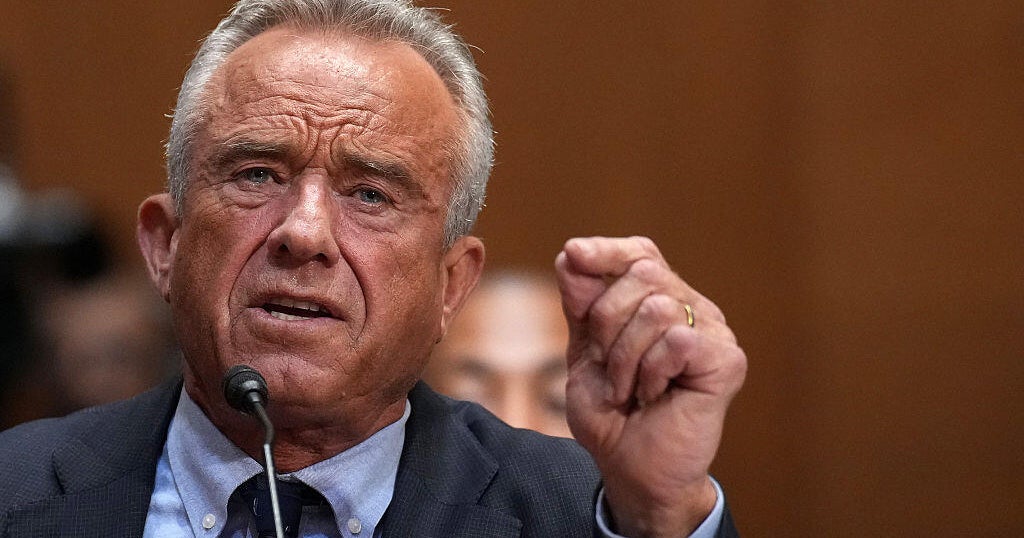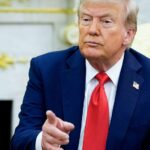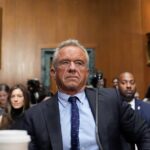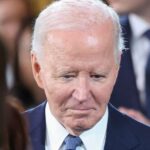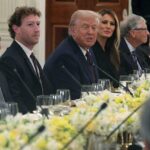In a recent series of events that have stirred the public and political arenas alike, a controversy has erupted involving Health and Human Services Secretary Robert F. Kennedy Jr., who on Thursday vehemently denied allegations that he pressured Dr. Susan Monarez, the former director of the Centers for Disease Control and Prevention (CDC), to preapprove vaccination recommendations set forth by a newly restructured advisory panel before her controversial dismissal from the agency.
The tension reached a new height when Dr. Susan Monarez, who was relieved from her position less than a month after receiving Senate confirmation, penned an opinion piece published in the Wall Street Journal. In her article, Monarez claimed that during a meeting on August 25, Kennedy had coercively suggested she either resign or face termination. According to Monarez, one of the most disconcerting directives she received was an insistence on preapproving the decisions of a CDC vaccine advisory panel that had been recently populated with members known for their anti-vaccine sentiments.
This opinion piece by Monarez surfaced shortly before Kennedy was scheduled to testify before the Senate Finance Committee, intensifying scrutiny over his vaccine policies and his enactment of changes within the CDC’s advisory structures. During his testimony, when confronted by Democratic Senator Ron Wyden from Oregon, Kennedy categorically denied having a private meeting with Monarez in which such demands were made. He stated, “I did not say that to her. I never had a private meeting with her. Other witnesses to every meeting that we have, and all those witnesses will say, I never said that.”
Senator Wyden, seeking clarification and perhaps sensing the gravity of the claim, pressed Kennedy further, inquiring if Monarez was lying about the details she provided in her op-ed. To this, Kennedy responded affirmatively, asserting that Monarez’s allegations were not grounded in truth.
The hearing continued to explore various aspects of this dispute, with Democratic Senator Raphael Warnock of Georgia probing whether Kennedy had explicitly directed Monarez to automatically endorse the panel’s recommendations without a substantial review by career scientists. In response, Kennedy nuanced his previous directives, indicating that he had not precluded Monarez from agreeing to the recommendations but had questioned her if she disagreed with the need for prior consent.
At another juncture in the hearing, a somewhat personal angle to the conflict emerged when Kennedy revealed he had questioned Monarez’s integrity during one of their conversations, leading to her eventual dismissal after her affirmative response to his question regarding her trustworthiness.
In the wake of these assertions, attorneys for Monarez, Mark Zaid and Abbe Lowell, released a statement categorizing Kennedy’s claims as misleading and at times absurd. They staunchly defended Monarez’s testimony, underscoring her commitment to uphold scientific integrity, a principle she vowed to adhere to during her confirmation hearings.
Earlier in June, prior to this episode, Kennedy had taken a controversial step by dismissing all sitting members of the Advisory Committee for Immunization Practices (ACIP), critiquing the body as a mere formal approval group for vaccinations without substantive deliberations. Subsequently, he appointed several individuals with recognized skeptical views on vaccines. This action deviated from standard CDC practice that typically favors nominations of seasoned medical and public health experts to such panels.
The reconstituted ACIP, now under intense scrutiny, is slated to convene later this month to deliberate on pertinent vaccine-related recommendations. In her op-ed, Monarez fervently hoped that the committee’s resolutions would undergo rigorous and scientific scrutiny prior to their endorsement or rejection, reflecting a departure from what she perceived as an unwelcome precedent of unchecked approvals.
Following these developments, several senior CDC officials tendered their resignations, citing misgivings regarding the prevailing administration’s stance on vaccine science and ongoing budgetary reductions, which they feared might undermine the agency’s objective scientific endeavors further.
The discourse surrounding these events continues as both the public and various stakeholders from the medical, scientific, and political spectra seek clarity and assurance that public health policy, particularly concerning vaccines—a cornerstone of preventive medicine—remains grounded in robust scientific evidence and ethical standards, free from political or ideological manipulation.

